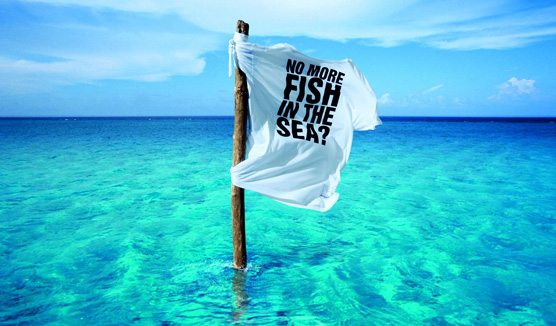One of the best things about living in Barcelona is the variety of fish and seafood available. The glistening, fresh bounty that is stacked onto stalls in every market and supermarket in the country is an impressive sight. Go to the Boqueria market on the Rambles early in the morning and you’ll find fierce old ladies, determined to buy the best of the day’s catch, elbowing the tourists aside.
Spain LOVES fish. It’s on every menú del día, every family dinner table, every tapas crawl, every restaurant blackboard. All varieties of delicious creatures from the deep are enthusiastically tucked into by people of all ages. But it’s possible to love something to death: according to recent studies, Spain consumes an average of 44.8kg of fish per year, more than double the European Union average (22.1kg).
That wouldn’t, in and of itself be a bad thing if it were sustainable — but it’s not.
The state of the world’s oceans has become an increasingly high-profile subject in other countries. Documentaries such as the excellent The End of the Line show graphically just how bad the situation is becoming as fish stocks plunge due to mismanagement. Europe, with Spain as its biggest internal consumer, is one of the biggest contributors to the collapse of global fish stocks and EU fishery policies have long been political bargaining chips for the respective fishing fleets of member nations rather than tools to effectively manage fish stocks.
In July this year, the first steps towards change were finally taken. Following a high-publicity campaign in the UK by food writer and TV presenter Hugh Fearnley-Whittingstall, a review of the EU’s Common Fishing Policy was announced in Brussels. The quotas system introduced in 1983 has been an unmitigated failure and has led to the absurd situation where huge amounts of fish caught — sometimes up to 80% — are discarded overboard because boats cannot land if they have exceed their fixed limits.
The admissions of failure from Maria Damanaki, the EU’s maritime commissioner, were stark: “I have no problem to apologise if something is wrong,” she said. “We cannot afford business as usual. Maybe 10 years ago, the past, it was easier for us, in the European Commission, in governments, in the sector, to close our eyes. We cannot do that anymore because if we do our children will see fish, not on their plates, but only in pictures.
“If it’s business as usual, in 10 years only eight out of 136 stocks will be healthy.”
88 per cent of European fish stocks are overfished, while the world average is 25 per cent. But Europe, with Spain as chief culprit, isn’t just destroying its own resources — it is now a major consumer of imported fish. Indeed, it has been calculated that if, starting on January 1st each year, Spain ate only domestic supply (in this case domestic refers to fish from its own quotas, including the north sea around the UK, the North Atlantic and right across the Mediterranean, as opposed to from Spanish territorial waters) it would exhaust them by May 8th. The EU as a whole would run out each year by July 2nd.
One might assume, given that fishing is an integral part of the Spanish economy and eating fish is practically a birthright for Spaniards, that this would be a well documented issue, with the government desperate to maintain fish stocks and ensure that future generations can continue to enjoy their gastronomic inheritance.
Apparently not. The EU policy reforms are fiercely opposed by powerful Spanish fishing businesses whose deep-sea mega-trawlers (as opposed to smaller, local fleets) will be most affected by changes to the law. There has been barely a mention of Damanaki’s announcements in the Spanish press.
Spanish celebrity chefs continue to promote the consumption of endangered species and sustainability is simply not on the radar of most shoppers when they look at those gorgeous market stalls. When the subject is raised with fishmongers, cooks or housewives it’s met with either a shrug of indifference or a defensive claim that it must be all simply an over-exaggeration. It is ironic that the UK — not a massive fish-consuming nation with the exception of cod, salmon and tuna — has made this a publicly-supported campaign while it is ignored in Spain, where it is needed most. Perhaps if Fearnley-Whittingstall were as telegenic as Jamie Oliver he’d have similar international influence.
Fortunately, progress is being made. The makers of The End of the Line have a website called Fish2Fork, which now has a Spanish section with weekly news of what’s happening here and what you, as a consumer, can do to change things. There’s also a guide to restaurants in Spain, rating them on how well their fish is labelled and how sustainably it’s sourced. You can recommend restaurants to be reviewed and send suggestions to them at info@fish2fork.co.uk.
Spain wouldn’t be Spain if we couldn’t enjoy hake, salt cod, sea bass and the great dishes that generations of chefs have created using them. It is to be hoped that changes can be made now to ensure that future generations have the same privileges.

Leave a Reply